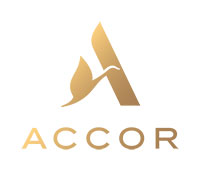
Research and Markets: Germany's Negative Economic Slowdown, Review Food and Drink Market for 2009 (Allemagne)
|
 |
Research and Markets: Germany's Negative Economic Slowdown, Review Food and Drink Market for 2009 (Allemagne)
|
Catégorie : Monde - Allemagne - Économie du secteur
- Chiffres et études
Ceci est un communiqué de presse sélectionné par notre comité éditorial et mis en ligne gratuitement le 20-02-2009
Research and Markets has announced the addition of the "Germany Food and Drink Report Q1 2009" report to their offering.
Germany Food Drink Report provides independent forecasts and competitive intelligence on Germany's food and drink industry.
The export-led nature of Germany's economy leaves it particularly exposed during a global economic slowdown and means that Germany's economic growth rate is forecast by BMI to be negative in 2009. With consumer confidence also damaged by the financial crisis consumer spending on food and drink is expected to take a hit in the next two years. With discount stores already accounting for around 40% of grocery sales the German retail landscape is already set up to accommodate this trend. However, heightened price-sensitivity will be an unwelcome return for the country's food and drink producers, which over the past year had been enjoying success with premium and value-added ranges. In October 2008, the CEO of Tengelmann, which owns a minority stake in Plus discount stores, predicted a recession, due to the global credit crunch and revealed that they expect discount retailers to prosper. Despite this negative prognosis, two of Germany's largest retailers have revealed that they will continue to invest in new stores. Edeka, which is Germany's largest grocery retailer by sales, has announced plans to open around 1,000 new stores by the end of 2010. Meanwhile Rewe, Germany's second largest grocery retailer, has confirmed plans to open an additional 750 outlets by 2014.
Edeka has plans to open around 200 supermarkets and 150 discount stores a year, while Rewe has revealed that it will be expanding both its Penny discount network and its Rewe supermarket format. This dual focus on both full-service supermarkets and discount stores reflects the current market conditions, with the discount format likely to provide the best returns in the short term while consumer confidence is low, but with the supermarket format likely to bounce back once the economic climate improves. Retailers are also increasing the focus on value through broadening their private label ranges. In November 2008, Metro launched a new private label strategy at it Real Hypermarkets. The firm plans to have 1000 private label producers on the shelves by the end of the year and hopes that its private label range will eventually account for up to 25% of total sales.
For producers of branded food and drink products a trend towards discount stores and private label ranges can only be bad news. For sectors that were already struggling, such as carbonated drinks and beer, the downturn is likely to amplify existing trends and BMI is therefore forecasting consumption in these segments to fall away markedly. In other sectors intense competition among retailers is likely to keep prices low and BMI is therefore forecasting only a marginal increase in consumption for at least the next two years.
|
|






